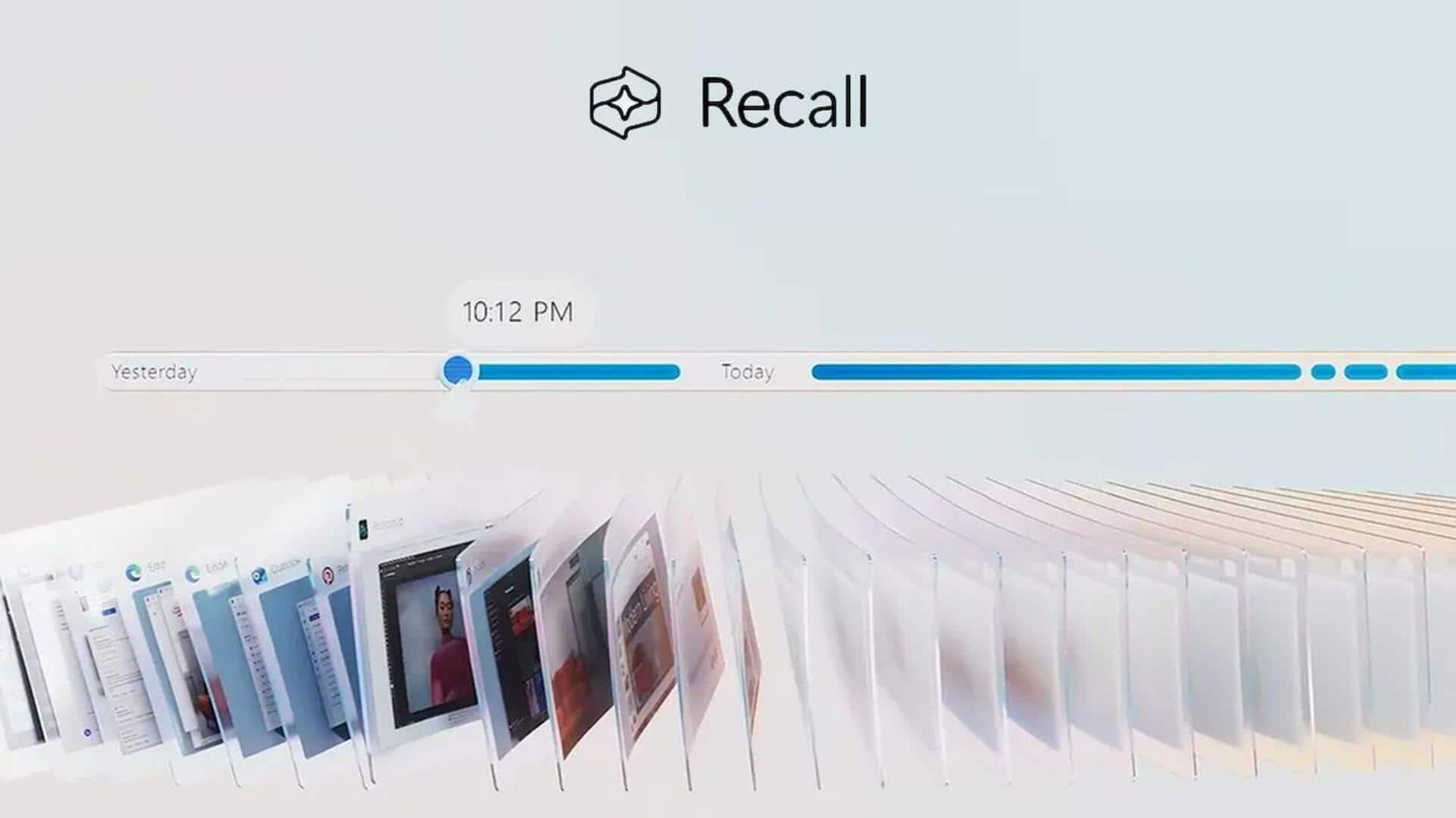
Microsoft responds to privacy concerns over new 'Recall' feature
What's the story
Microsoft is addressing privacy concerns surrounding its 'Recall' feature, which is designed for Copilot+ PCs. The company has confirmed that 'Recall' will be an opt-in feature, requiring explicit user permission to log activity. This move is seen as a positive step toward addressing privacy concerns raised by users over data storage and access. During the setup of a Copilot+ PC, users will be asked if they wish to enable this feature.
Feature preview
A photographic memory for PCs
'Recall' was introduced with the aim of helping users find something they've previously viewed or done on their Copilot+ PCs, based on what they can remember. It can unearth details from chats, productivity apps, emails, and more. Microsoft describes it as a photographic memory for your PC. A preview of 'Recall' will be available on Copilot+ PCs, which are set to start shipping on June 18.
User authentication
Enhanced security measures through authentication
To bolster security, Microsoft will require users who opt for 'Recall' to authenticate using a Windows Hello method like facial recognition or a fingerprint scan. This authentication is required before users can scroll through or search their activity timeline on 'Recall.' However, this measure alone won't make the feature completely secure, as anyone with knowledge of the user's PIN could potentially gain access.
Enhanced security
Additional protections for Recall snapshots
Microsoft is introducing further protections for the snapshots taken by 'Recall.' The company will use "just in time" decryption protected by Windows Hello Enhanced Sign-in Security. Snapshots will only be decrypted and made available after user authentication. Additionally, the search index database used by 'Recall' will also be encrypted, providing an extra layer of security to user data.
Data privacy
Microsoft assures on-device processing and data storage
Microsoft has assured users that snapshots taken by 'Recall' will remain on-device and won't be used to train AI models. Users have the option to block 'Recall' from taking pictures of specific apps, and can pause or delete snapshots at any time. The AI processing that powers 'Recall' will also happen on-device, further ensuring user data privacy.